
Sports remains one of the biggest aspects of American culture——and business is doing well. The latest figures project that professional sports will be worth over $70 billion by 2019, and amateur athletics only magnify that number.
According to the Bureau of Labor Statistics, employment for coaches and scouts is predicted to increase 13% through 2026 (276,100 jobs), which is nearly twice the average rate. High school and collegiate sports participation should rise over the next decade, particularly at small liberal arts schools and in women’s sports with increased opportunities and funding.
While many coaches begin their careers with little-to-no formal training, master’s tracks in coaching are increasingly popular and in many cases may be necessary for competitive head coaching/leadership positions. Curricula vary for each master’s program and specialization, but most degrees focus on subjects like sport psychology, leadership, strength and conditioning, performance, ethics, and other areas.
We’ve ranked the twenty most affordable master’s in coaching below, including online master’s of education, arts, and science. We’ve also included alternative coaching programs for life coaches, career coaches, and corporate-oriented coaches. Every program offer some form of financial aid, and note that many universities offer in-state tuition to online students.
1) Carson-Newman University
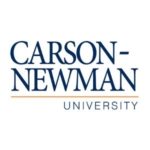
Carson-Newman University, founded in 1851, is a private Christian institution with a total enrollment of about 2,700. US News ranks the university among the best schools in the South and 26th for overall value. With a 13:1 student-to-faculty ratio, classes are kept small and intimate to support individualized instruction, collaborative learning, and a tight-knit educational community. Sixty percent of classes have fewer than 20 students.
CNU offers an online MEd in Coaching that consists of 36 hours: 15 core, 15 emphasis, and 6 thesis/non-thesis. Areas of study include Philosophy and Ethics in Sport, Physical Conditioning of the Athlete, Injury Management, Sport as Ministry, and Psychology of Sport Performance, and Foundations of Leadership, among others. The accelerated format allows students to complete the degree in as little as five semesters, and all courses are designed for maximum flexibility to accommodate working professionals, adult learners, and currently licensed teachers renewing their licensure. The standards set by the National Council for Accreditation of Coaching Education (NCACE) serve as the program’s basis.
- Homepage
- Tuition Per Credit: $390
2) American Public University
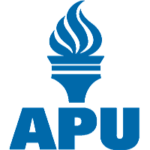
With a total enrollment of more than 50,000 students, American Public University is a leading online education institution. Founded in 1951 as a subsidiary of the American Military University, nearly 60% of students are active duty or military veterans, and 17,000 are enrolled through the GI Bill. All students receive some form of financial aid, and the university’s 19:1 student-to-faculty ratio promotes a dynamic learning community that combines the resources of a large research university with the intimate, individualized instruction of a liberal arts school.
American Public offers an online MS Sports and Health Sciences designed to provide students with the knowledge to design effective movement programs that assist clients, patients, or organizations in achieving their athletic, fitness, or general health goals. All courses are flexible to fit unique schedules, and expert instructors direct studies in human bioenergetics, nutrition, movement, and the latest learning techniques and skills. Master’s students apply 8 transfer credits on average, accelerating degree completion time and reducing costs.
- Homepage
- Tuition Per Credit: $350
3) Greenville University

Founded in 1892, Greenville University is a private Christian school with a total enrollment of about 1,200. US News ranks it among the best universities in the Midwest, and several of its online programs have been rated and reviewed. With a 14:1 student-to-faculty ratio, Greenville emphasizes a small, intimate educational setting that combines personalized instruction and collaborative learning. Nearly sixty percent of classes have fewer than 20 students and less than five percent have over 49.
Greenville offers an online MA in Coaching that features 33 credits, including Leadership in Coaching, Faith Development through Sports, Coaching Character, Sport Skill Analysis, Advanced Sport Coaching Methodology, Managing Learning Technologies, Trends and Issues in Education, and Equity in School and Society. To add a real-world component to the curriculum, all students must complete a capstone project in which they design and implement an improvement effort in their school district or organization. All courses are designed for maximum flexibility and convenience, delivering in accelerated 8-week blocks. Upon graduation, students will be prepared to: develop effective scouting procedures, conduct efficient practice sessions, utilize game management strategies, and examine sports performance techniques, among other skills.
- Homepage
- Tuition Per Credit: $418
4) Xavier University

Xavier University, founded in 1831, has a total enrollment of about 6,500. Among the oldest Catholic universities in the country, US News ranks it 5th in the Midwest, 4th for veterans’ services, and in the top 25 for overall value. Forbes and Kiplinger’s Finance recognize the university, as well. The 12:1 student-to-faculty ratio supports a vibrant educational community, combining individualized instruction with peer-to-peer learning opportunities. Over forty percent of classes have less than 20 students and less than one percent have 49.
Xavier offers an online MEd in Coaching Education and Athlete Development that emphasizes three components: Coaching Pedagogy, Long-term Athlete Development, and Character Development. All courses are designed for maximum flexibility to accommodate working professionals and adult learners, and the program’s two-year cohort model promotes a collaborative approach. In addition to a traditional course plan, Xavier integrates in-depth studies in athlete development by applying the Integrated Coaching and Sport Education (I-CaSE) model, and the program is designed in accordance with the National Association for Sport and Physical Education (NASPE), as well as the National Council for the Accreditation of Coaching Education (NCACE).
- Homepage
- Tuition Per Credit: $540
5) Concordia University – Irvine

Concordia University – Irvine, founded in 1972, has a total enrollment of 4,300 and is ranked among the top schools in the region by US News, with high marks for military veteran services and overall value. The university’s 18:1 student-to-faculty fosters intimate and tailored instruction, as well as opportunities for collaborative learning. Nearly sixty of classes have fewer than 20 students. As a Christian university, Concordia identifies seven education targets: Systematic Inquiry, Clear Communication, Health and Well-Being, Sociocultural Responsiveness, Aesthetic Responsiveness, Christian Literacy and Life, and Servant Leadership.
Concordia Irvine offers a master’s in Coaching and Athletics Administration that consists of 36 credits. Core requirements include Principles of Coaching & Leadership, Ethics and Sport, Legal Aspects of Sport, Research Methods & Analysis, and a four-part culminating project. From there, students can customize the degree to earn either an MS or MA, depending on professional needs and career goals. With four entry date options, Irvine’s program is highly flexible, and courses deliver in convenient 11-week blocks to accommodate a variety of schedule types. In particular, graduates will develop a national professional network of peers, colleagues, and instructors; hone a practical approach to coaching and athletic administration; strengthen teaching, coaching, and administrative abilities; and enhance character development and ethical leadership in a faith-based environment.
- Homepage
- Tuition Per Credit: $410
6) West Virginia University

Founded in 1867, West Virginia University has a total enrollment of 29,000 and is ranked among the top 100 public schools in the nation by US News. At least five of WVU’s online programs are nationally ranked, and Forbes[ and Washington Monthly have highlighted WVU, as well. With a 19:1 student-to-faculty ratio, West Virginia combines the resources of a Carnegie Foundation-recognized research institution with the intimacy of a small liberal arts school. Nearly forty percent of classes have fewer than 20 students and less than 18 percent have 49 or more.
WVU offers a 31-credit online MS in Sport Coaching that prepares students to work at the scholastic, community, or club level. Requirements include Strength and Conditioning Methods for Coaches, Coaching Techniques, Training Theories for Coaches, Positive Youth Development, Motor Behavior for Sport Coaches, Sport Movement Analysis, and Coaching Education Administration. In order to support a highly immersive, real-world oriented curriculum, WVU also requires four coaching internships throughout the program. In particular, WVU focuses on whole athlete development in the areas of talent, life skills, and character development, and graduates are qualified to work in a variety of coaching, education, and administration positions.
- Homepage
- Tuition Per Credit: $406
7) Georgia Southern University
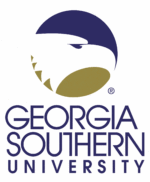
Georgia Southern, founded in 1906, is a public university with a total enrollment of 20,500, representing 48 states and 89 countries. Classified as a doctoral/research institution by the Carnegie Foundation, Georgia State’s 22:1 student-to-faculty ratio fosters a vibrant and collaborative educational community, as well as intimate, tailored instruction. A quarter of classes have fewer than 20 students and only 10 percent have 49 or more. In particular, GSU emphasizes academic distinction, excellent teaching, research, and student success.
Georgia Southern offers a wide range of online master’s in coaching and sports administration, including in Coaching Education, Exercise Science, Physical Education, and Athletic Training. Most tracks require 36 credits, and all coursework is designed for maximum flexibility, convenience, and professional development. The Coaching Education emphasis follows National Coaching Standards for Level 5 Coaching Status, and features classes in areas like Teaching Analysis and Psychology Of Peak Performance, Sports Administration and Sports Biomechanics, Injury Prevention and Research Methods for Coaches, and Team Dynamics. Practicum requirements add a real-world component. GSU’s extensive student support services include academic advising, transfer assistance, registration services, and more.
- Homepage
- Tuition Per Credit: $406
8) Liberty University
![]()
Founded in 1971, Liberty University is a private Christian school with an enrollment of 14,000 on-campus and 100,000 online students. As a leader in distance education for over 30 years, all 250 online programs are created to accommodate working professionals, adult learners, and non-traditional students with affordable tuition and tailored delivery methods like hybrid, intensive, and blended. For transfer students, Liberty’s generous policy allows students to waive course work through previous academic credits, work/life experience, military service, MOOC certifications, examinations, and/or portfolio work. Finally, Liberty’s low student-to-faculty ratio supports an intimate learning community, with a third of classes consisting of fewer than 20 students.
For students interested in a non-athletic program, Liberty offers an MA in Human Services Counseling with a specialization in Life Coaching that features 30 credits. Core requirements include Human Growth & Development, Integration of Spirituality & Counseling, Studies in Interpersonal Communication, Multicultural Issues in Human Services, and Group Dynamics. From there, students complete cognate classes in Advanced Life Coaching Skills, Health & Wellness Coaching, Marriage Coaching, and Financial Life Coaching, among others. With up to 50% of credits available for transfer, many students are able to complete the program in less than the planned 3 semesters. In addition to a career in life coaching, potential professional tracks include as a job coach, educational instructional coach, business consultant, and counselor.
- Homepage
- Tuition Per Credit: $565
9) Grand Canyon University

Grand Canyon University, founded in 1949, is a Christian university based in Phoenix with an enrollment of more than 75,000, including about 66,000 online students. As a global leader in distance education innovation, Fortune ranks Grand Canyon in the top 5 online schools for entrepreneurs, and U.S. News ranks it among the best universities in the West. With a 17:1 student-to-faculty ratio, GCU combines a vibrant, collaborative learning philosophy with tailored instruction to create a cutting-edge educational experience.
Grand Canyon offers an MS in Psychology with an emphasis in Life Coaching. The 36-credit curriculum includes classes in Contemporary and Ethical Issues in Psychology, Individual Coaching, Graduate Statistics, Research Methods, Business and Organization Coaching, and Social and Cultural Psychology. To integrate an immersive component, all students complete a professional capstone. Online classes deliver in accelerated 8-week blocks, and are highly flexible to fit students’ schedules; GCU’s transfer policy allows up to 12 credits to be waived. In addition to specific academic theory, the program covers cognition, motivation, psychology, leadership theory, communication, and data analysis.
- Homepage
- Tuition Per Credit: $500
10) University of Missouri

Founded in 1839, The University of Missouri – Columbia has a total enrollment of about 33,000, with satellite campuses in Rolla, Kansas City, and St. Louis. Classified as an R1 by the Carnegie Foundation, Missouri is considered one of the best public universities in the country, is a member of the Association of American Universities, and ranks among US News‘ best schools for overall value and military veterans. With a 19:1 student-to-faculty ratio, Missouri fosters a tight-knit learning community and personalized instruction. Forty percent of classes have less than 20 students and less than one in five have 50.
Missouri offers an online MEd Education, School and Counseling Psychology with an emphasis in Positive Coaching. Consisting of 30 credits, courses cover athletic administration, athlete training and conditioning, character and ethics in sport and leadership, emotional health and well-being of the athlete, gender and multicultural issues in sports, and wellness and self-care of coaches. Optional 8-week course blocks offer the opportunity to accelerate the degree, but most students finish in two-and-a-half years on a part-time basis. Most important, all online students pay in-state tuition, regardless of where they live. The program is accredited by the Teacher Education Accreditation Council.
- Homepage
- Tuition Per Credit: $352
11) University of Southern Mississippi

Founded in 1910, University of Southern Mississippi has a total enrollment of about 14,500, representing all 50 states and 67 countries. US News ranks several of its programs among the best in the country, and the Carnegie Foundation ranks USM as a RU/H: Research University and classifies it as a Carnegie Community Engagement school. With a 17:1 student-to-faculty ratio, Southern Miss combines a vibrant and collaborative learning community with small, intimate classes. Over forty percent of classes have fewer than 20 students and less than 10 percent have 50 or more.
Southern Miss offers an MS in Sport Coaching Education that requires 36 credits in areas like Sport Psychology, Foundations and Trends in Kinesiology, Organizational Leadership and Management in Sport, Legal Aspects of Sport, Advanced Development of Strength and Conditioning Programs, and Sport Skill Analysis, among others. From there, students have the opportunity to customize the degree with either a thesis or practicum. Courses are designed to accommodate working professionals enrolled on a part-time basis, which allows students to complete the degree in two years. All online students pay in-state tuition regardless of where they live, and USM is a military-friendly college for veterans and service members. For those interested, the university also offers a fully online MS in Kinesiology with an emphasis in Physical Education.
- Homepage
- Tuition Per Credit: $589
12) University of Northern Colorado

University of Northern Colorado, founded in 1890, has a total enrollment of 12,300. US News ranks several of its programs among the best in the country, including online tracks, and UNC is a Carnegie Community Engagement-classified university. While Northern Colorado features all the resources of a large research institution, the 18:1 student-to-faculty ratio fosters a tight-knit, intimate learning community with tailored instruction from world-class faculty. Thirty-seven percent of classes have fewer than 20 students and just eleven percent have 50 or more.
Northern Colorado offers an online MA in Sports Coaching that consists of 30 credits in a variety of subjects: Teacher and Coach Action Research, International Perspectives of Sports Coaching, Sports Administration for Sports Coaches, Evaluation of Coaching using Technology, and Psychology for Sports Coaches, among others. To incorporate a real-world component, students must complete two graduate internships in Sport and Exercise Science, as well as a course in Bridging Theory and Practice in Sports Coaching. Courses deliver in accelerated blocks, allowing full-time students to finish the program in as little as 18 months (or 5 semesters). For those interested, UNC offers similar master’s degrees in Sports Administration and Physical Education & Physical Activity Leadership.
- Homepage
- Tuition Per Credit: $555
13) Lewis University

Founded in 1932, Lewis University is a Roman Catholic and Lasallian university in Romeoville, Illinois, with a total enrollment of 6,500 US News and Princeton Review rank Lewis among the best universities in the Midwest, with high marks for veterans’ services and overall value. The student-faculty ratio is 13:1, and seventy percent of classes have fewer than 20 students, creating a tight-knit, collaborative learning community with personalized instruction.
Lewis offers a unique 36-credits MA in Organizational Leadership with a concentration in Professional and Executive Coaching, which includes courses in Coaching Methodologies, Building a Coaching Practice, Coaching Research, and Introduction to Organizational Leadership and Coaching. The curriculum emphasizes real-world, applicable examples, includes an immersive capstone project, and is accredited by the International Coach Federation (ICF) to prepare students for the ICF’s credentialing exam. In addition to the concentration’s coursework, students will learn to apply models to organizational change and leadership, conflict management and team building; to understand the role of leadership in shaping organizational culture, including on diversity, participative management, and self-reflection; and to implement critical-thinking and decision-making skills. For students interested in a shorter track, Lewis offers an 18-credit online Professional and Executive Coaching certificate.
- Homepage
- Tuition Per Credit: $760
14) Ball State University
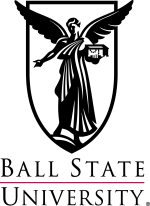
Founded in 1918, Ball State University has a total enrollment of 21,000, including students from 48 states, 43 countries, and each of Indiana’s 92 counties. As a member of the American Association of State Colleges and Universities, Princeton Review ranks BSU as one of the best colleges in the Midwest, and US News ranks it highly among national and public universities. The 16:1 student-to-faculty ratio promotes an intimate, peer-to-peer learning environment, and with 90% record of professors teaching classes, students benefit from personalized instruction. Over forty percent of classes have fewer than 20 students.
Ball State offers an online master’s in Athletic Coaching Education – the first of its kind in the country – that features 30 highly customizable credits: Physical Preparation and Conditioning, Evaluation in Coaching, Teaching and Motivation for Coaches, Skills and Tactics for Coaches, Sport Safety and Injury Prevention, Philosophy and Ethics, and Growth and Development for Coaches, among others. In particular, the curriculum is based on the National Association for Sport and Physical Education National Standards for Sports Coaches. BSU’s cohort model fosters a collaborative educational experience, and multiple entry dates per year means you can begin classes according to your own schedule. Another unique feature: for additional credits, Ball State offers an online license in physical education with a coaching specialization.
- Homepage
- Tuition Per Credit: $590
15) Texas Woman’s University

Texas Woman’s University is a co-educational university in Denton, just north of the Dallas-Fort Worth metropolitan area, with satellite campuses in Dallas and Houston. With an enrollment of approximately 15,000 students, TWU has a robust online school and offers bachelor’s, master’s, doctoral, and professional programs. US News ranks it among the best Tier 2 schools in the country. Though TWU has the resources of a large research institution, its 18:1 student-to-faculty ratio supports a tight-knit educational community with personalized instruction and collaborative learning opportunities. Nearly half of classes have fewer than 20 students. Among its distinguished alumni include politicians, academics, business leaders, athletes, and artists.
TWU offers an online MS in Kinesiology with an emphasis in Sport Coaching that consists of 36 credits. Only 6 credits are required: Methods of Research and Applied Statistical Principles. From there, students can customize the degree through a wide variety of specialization electives like Sport Injury Prevention and First Aid, Organization and Administration for Effective Team Management, The Sport Industry, Coaching Tactical Skills, Legal Issues in Sport, Environmental Exercise Physiology, Sport in American Society, and many more. The program ends in a cumulative experience of the student’s choice. All courses are designed for maximum flexibility to fit schedules for working professionals and adult learners, and student support services include career service, tech assistance, counseling, and orientation.
- Homepage
- Tuition Per Credit: $659
16) Southern Utah University

Southern Utah University, founded in 1897, is a public institution with a total enrollment of about 9,300. Princeton Review, Consumer Digest, and the Council for Community and Economic Research rank SUU as one of the best value schools in the country. US News places it in the top 25 public schools in the region. The 19:1 student-to-faculty ratio encourages a vibrant, dynamic learning environment, with expert faculty and individualized instruction. Over forty percent of classes have less than 20 students and just six percent have 50 or more.
Southern Utah University offers an online MS in Sports Conditioning & Performance that includes 33 credits. Core requirements are Foundations of Sport Conditioning, Advanced Techniques of Sport Conditioning, Designing Resistance Training Programs, Resistance Training Technique, Evaluation in Sport Fitness, and Introduction to Sport Science Research and Statistics. From there, students have the opportunity to customize the degree through a variety of electives like Bioenergetics and Sport Nutrition and Athletic Training & Sports Medicine. A thesis is required to graduate. While most coursework is online, students complete an on-campus summer intensive series that lasts 1-2 weeks. In particular, the program is designed for practicing coaches, physical educators, personal trainers, strength and conditioning coaches, physical therapists, athletic trainers and other fitness professionals.
- Homepage
- Tuition Per Credit: $588
17) Southwest Minnesota State University

Founded in 1963, Southwest Minnesota State University is a public institution with a total enrollment of about 7,300. US News ranks SMSU a Tier 1 regional universities, and the school’s mission is to bridge liberal arts academics to practical professional development. With a 17:1 student-to-faculty ratio, classes combine personal instruction and peer-to-peer learning to create a dynamic educational experience. Nearly forty five percent of classes have fewer than 20 students and less than three percent have 50. It is accredited by the North Central Association of Colleges and Schools.
Southwest Minnesota’s MS in Physical Education with an emphasis in Coaching of Sport is a fully online program with 34 credits. Courses include Philosophy and Ethics in Coaching, Educational Principles in Coaching, Psychology of Athletic Performance, Physical Preparation and Conditioning, Sport Safety and Injury Prevention, and Legal Aspects of Sport for Coaches, among others. At least two practicum experiences are required to add a real-world component, and all students must complete a portfolio capstone that demonstrates standards set by the National Association of Sport and Physical Education have been met. Transfer credits are available for students with relevant coursework within the last seven years.
- Homepage
- Tuition Per Credit: $436
18) University of Denver

Founded in 1864, The University of Denver is the oldest private college in the region, with a student enrollment of approximately 11,800. US News, Forbes, and Washington Monthly rank UD among the best universities in the country; US News gives it particularly high marks for for value and veterans’ services. The 11:1 student-to-faculty ratio is exceptional for a university of its size and keeps learning intimate, personal, and tailored to individual needs. Over half of classes have fewer than 20 students and just five percent have 50.
Denver offers a 36-credit online MA in Sport Coaching, designed for coaches with full- or part-time jobs at any level, as well as aspiring professional sports coaches. Core requirements cover Organization & Administration of Sport, Sociocultural Aspects of Sport Coaching, Motor Learning & Sport Pedagogy, Psychology of Athletic Performance, Biomechanics of Athletic Performance, and Understanding Sport Research, among others. Students then complete two practicum requirements and a capstone to earn first-hand experience and perform original research. For those interested in customizing the track, specializations are available in Strength & Conditioning, as well as Sport Psychology and Coaching. Most students complete the degree in two to three years, but accelerated tracks last as little as 5 academic quarters. The program is recognized by the National Strength & Conditioning Association (NSCA).
- Homepage
- Tuition Per Credit: $1,258
19) Western Michigan University
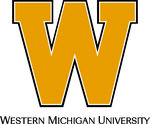
Founded in 1903, Western Michigan University has a total enrollment of about 23,300. Both Washington Monthly and US News include WMU on their academic rankings, with the latter highlighting several individual programs. While Western Michigan is one the region’s largest public institutions, the 17:1 student-to-faculty ratio supports small and intimate classes. Collaborative learning is encouraged, and the world-class faculty support students on an individual basis. Over forty percent of classes have fewer than 20 students and just ten percent have 50.
Western Michigan offers an online MA in Coaching Sport Performance that features 36 credits, which align with the National Standards for Sport Coaches and NCACE Accreditation Level 5. Core requirements include Skill Acquisition and Human Performance, Sports Safety and Injury Management for Coaches, Program Evaluation in Sport and Physical Education, Governance and Administration of Sport, and Sociology of Sport and Physical Activity, among others. From there, students complete a research module and a capstone experience to gain real-world practice. With multiple start dates throughout the year, WMU’s program is designed for maximum flexibility, and students on the accelerated track can complete the degree in as little as 18 months. (The standard track allows up to 6 years.) Student support services include personal academic advisors, career counseling, tutoring, and tech support.
- Homepage
- Tuition Per Credit: $590
20) Bellevue University
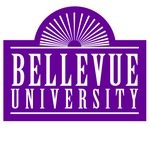
Founded in 1966, Bellevue University is a private Christian institution that specializes in flexible, affordable online education for working professionals, adult learners, and non-traditional students. The school’s dynamic learning platform features a range of tools: 24/7 access to course materials, live chat rooms, group discussion boards, video conferencing, and tech support. Flex paths, MOOCs, course clusters, and accelerated cohorts gives students numerous delivery options, and Bellevue’s 11:1 student-to-faculty ratio is excellent for a school of 11,000.
Bellevue offers an online MS in Leadership and Coaching that requires 36 credits, including Leadership Theories and Research, Developing Leader Effectiveness, Strategic Leadership, Leading Change in Organizations, Leadership and Organizational Performance, and Social Psychology of Leadership. From there, students take a 3-course module in Executive Coaching and must complete three coaching internships covering performance, skills, and competencies. In particular, Bellevue’s program is designed for one-on-one coaching and/or corporate leadership, with a variety of potential career paths; special emphases are on interpersonal engagement, effective communication, and how to generate and implement creative solutions for individuals, groups, or organizations. For those interested, the university also offers a Certificate of Completion in Executive Coaching.
- Homepage
- Tuition Per Credit: $525